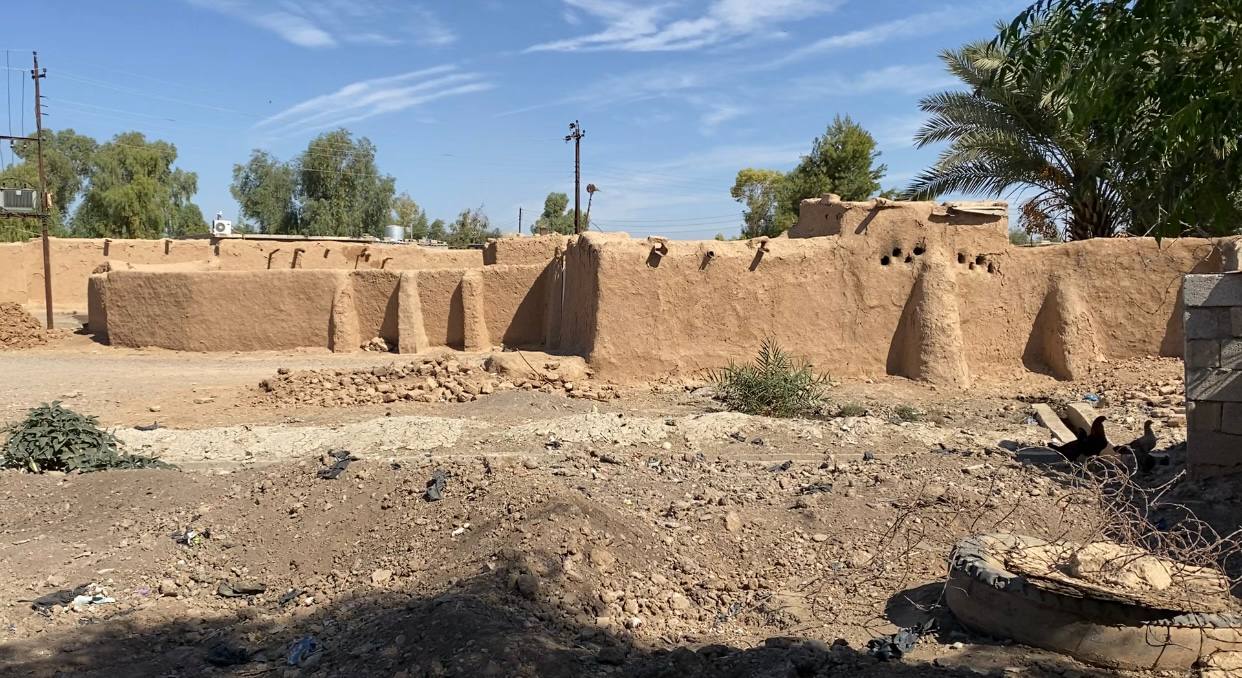The residents of six villages located south and west of Kirkuk leave their homes and villages due to threats by remnants of Daesh militants.
Those six villages are on the bank of Rokhana pond, south and west of Daquq district, 44 km south of Kirkuk, an area known for being hard to control for its dense trees and rural location.
Khalil Lihebi, council of Tamar village, one of those villages lately deserted infaer of militants of so-called Islamic State in Iraq and Levant ISIL, said “the militants of Daesh cross the pond at night and ask for food and other stuff, otherwise they threatened to kill us.”
The villagers are now in Daquq and its suburbs. Some rented houses and others living under tents yet no one has so far contacted them to offer any kind of aids.
Early June, a group of militants stormed the house of a Musahir Saleh, council of the village of Abdullah Hamad, late at night. “I was not at home. They threatened to kill me and my family if we do not follow them so we left the village,” Saleh said.
They threatened to kill me and my family if we do not follow them so we left the village
Saleh and his family now are living under a tent in the outskirts of Daquq, waiting for any one to give them a hand.
In the last two years, tens of offensives and operations were launched to eradicate the remnants of Daesh posing a serious threat to the civilians and security forces yet so far, a permanent stability could not be restored.
The nearest military point is only 10 km far from these villages where a unit of Iraqi federal police are based. Councils of these six villages representing about 50 Arab families met the mayor, acting governor of Kirkuk and commander of joint operations.
“We asked for more troops to be deployed there and they agreed but nothing on the ground,” Lihebi said.
The district of Daquq is home to over 97,000 Turkmen, Arabs and Kurds, Sunni, and Shiite Muslims, and Kaka’is as well. It’s part of Kirkuk province and one of the disputed territories between Baghdad and Erbil.
The local administrative authorities called on the military commanders to provide more troops to protect the civilians yet no actions taken on the ground
Lousi Fandi, acting mayor of Daquq, confirmed the villages has been evacuated. “Now those villages are out of control of the security forces.”
“We asked for deployment of more troops to normalize life of the villagers. We also briefed governor of Kirkuk about conditions of the villagers to aid them since they are in a dire living condition,” he added.
We asked for deployment of more troops to normalize life of the villagers
The sleeper cells of so-called Islamic State in Iraq and Levant ISIL lately escalated moves targeting Kaka’i civilians and Iraqi forces. In Mid-March, a soldier of Iraqi army was killed and another injured southwest of Daquq district.
Early March, Tens of ISIS hideouts destroyed and several militants killed in an air-land operation by Iraqi forces in three disputed areas. Following escalation of ISIS attacks in February killing over 15 members of Iraqi forces and tens injured, a wide range of operations launched in Khanaqin, Daquq and Duz Khurmatu disputed territories.
Currently, Iraqi army, local and federal police, Brigade 61 of Special Forces along with Shiite paramilitary of Poular Mobilization Forces PMF, are under Kirkuk joint operations’ command, an umbrella for the security forces running the security of Kirkuk province.
Last February, Iraqi minister of interior Othman al-Ghanimi paid a visit to Kirkuk and met the security commanders of Daquq. He slammed at the senior officers for the security gap and lack of coordination and exchange of information among the security forces easing the infiltration of Daesh remnants into the region.
He pledged to deploy more troops following escalation of threats by ISIL militants.
In June 2020, Iraqi Prime Minister Mustafa al-Kadhimi, only one month following his appointment, visited Daquq to chair an operation to “block the sources of terrorism… and protect the lives and properties of people in the region,” a statement by the council of ministers.
The threats by ISIL south and southwest of Kirkuk are escalating while former Iraqi PM Haidar al-Abadi has declared victory over ISIL in October 2017.





